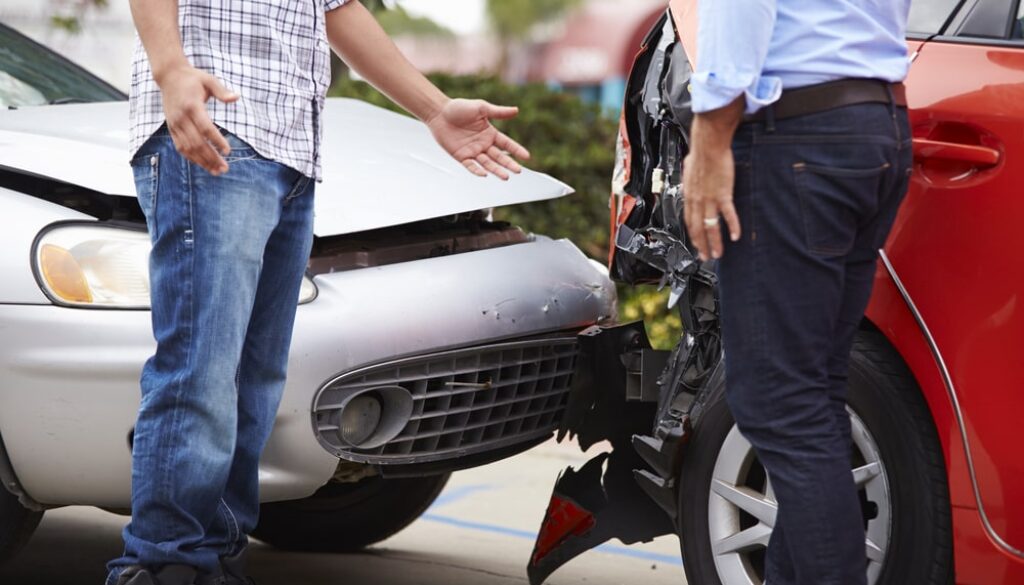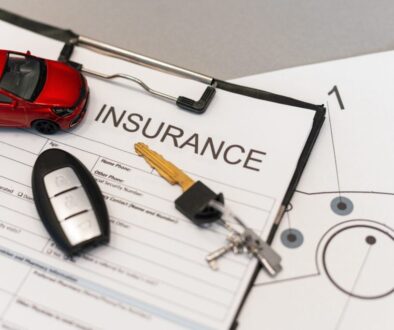What to Expect After a Car Accident
Knowing what to expect after a car accident can help you handle the situation more effectively. To discuss your situation and what to expect given your circumstances, consult a Tulsa car accident attorney immediately.
Medical Treatment
After a car accident, make immediate medical care your priority.
Go to the emergency room or urgent care if your injuries seem less serious. Expect a thorough medical evaluation to identify hidden injuries. Some injury victims require hospitalization, while others must follow up with specialists in the coming days to obtain a treatment plan.
Prompt treatment not only safeguards your health but also establishes a crucial link between the accident and your injuries for legal purposes. Timely medical records will serve as key evidence of your accident-related injuries. Your journey to recovery begins with comprehensive medical care.
Keep Records
After a car accident, keeping good records of everything that happens afterward is very important. This means writing down and saving information about the accident, medical care, any time you miss work, and all your talks with insurance companies. It also includes keeping track of all the costs due to the accident.
Why Keeping Records Is Important
 Having detailed records helps ensure you remember everything necessary about the accident or what happens afterward. This information can help when you talk to your insurance company or if you need to work with a lawyer.
Having detailed records helps ensure you remember everything necessary about the accident or what happens afterward. This information can help when you talk to your insurance company or if you need to work with a lawyer.
It provides a clear picture of the accident and its effects on your life.
- Information about the accident: Write down everything you remember about the accident as soon as you can. Include details like where and when it happened, how it happened, and the weather conditions. If the police came to the scene, note down the report number.
- Photos: If you took pictures at the accident scene, keep them safe. These photos can show things like the damage to your car, the position of the vehicles, and any injuries you have.
- Medical records: Keep all records of your medical visits, treatments, and any medicine you take. This shows the injuries you got from the accident and the treatment you needed.
- Work records: If you miss work because of your injuries, record the days you miss and any lost pay. This shows how the accident affected your ability to work.
- Communication with insurance companies: Write notes from your talks with insurance companies. Include the date of the talk, who you spoke with, and what was said. Save any letters or emails you get from them, too.
- Receipts and bills: Keep all receipts and bills related to the accident. This includes car repairs, medical bills, and any other costs you have because of the accident.
Organizing Your Records
Having all these records is great, but keeping them organized is also important. You can use a folder or a binder to keep everything in one place. This way, you know where to look to find a specific document.
Using Your Records
If you need to file an insurance claim or talk to a lawyer about the accident, having your records ready will significantly help. They can use this information to understand what happened and how it affected you. This can be very important for getting the insurance benefits you deserve or for any legal action you might take.
Dealing with Insurance Companies
Dealing with insurance companies after a car accident can be a complex process. It involves several steps, from understanding how the insurance company investigates the accident to negotiating a settlement offer.
Understanding the Process
When you file a claim with an insurance company, they investigate who was liable for the accident and how much damage was done. This investigation is a big part of their process.
They’ll look at the police report, which details the accident from an official point of view. The insurance company might also look at the cars involved to see how much damage there is and talk to anyone who saw the accident.
It’s important to know that this investigation is how the insurance company gets its side of the story. They’re trying to gather as much information as possible to make a decision about your claim.
During this time, you must provide any information or evidence you have, like photos from the accident scene or records of your medical treatment.
The Settlement Offer
After the investigation, the insurance company might offer you a settlement. This is a sum of money they offer to cover your damages from the accident. The first offer they make is usually just a starting point. This means you don’t have to accept it immediately if you think it’s too low.
The settlement should cover the costs of your car repairs, any medical bills from injuries you got in the accident, and other costs like lost income if you can’t work because of your injuries. If the offer doesn’t cover all these things, you might need to negotiate for a higher amount.
Making Decisions
Deciding whether to accept a settlement offer can take time and effort. Consider whether the offer covers all your costs and losses from the accident. Talking to a lawyer is necessary before accepting any amount of compensation. They can determine if the offer is fair and can speak to the insurance company to get a better deal if required.
When making this decision, think about all the costs of the accident, not just the ones you have right now. This includes future medical treatment you might need or future repairs for your car. You want to make sure the settlement covers everything so you’re not left paying for things related to the accident later on.
The Role of a Lawyer
If the accident was severe, or if you’re having trouble getting a fair settlement from the insurance company, it might be helpful to talk to a lawyer. A lawyer can:
Help You Understand Your Rights and Options
After a car accident, you need to understand your rights and the options available to you. This can be difficult, as it involves reading insurance policies and sometimes legal issues.
A crucial role of a lawyer in this situation is to explain your rights in a way that is easy to understand. They can inform you about the legal aspects of your accident, including any potential compensation you may be entitled to for damages and injuries.
Your lawyer will review the details of your case and discuss the paths you can take. This includes filing a claim with your insurance company, seeking compensation from the other party’s insurance, or pursuing a lawsuit if the insurance does not cover all your losses. They can also advise you on what to expect in each scenario, including the potential outcomes and any risks involved.
Understanding your rights and options is the first step in making informed decisions about proceeding after your accident. With a lawyer’s guidance, you can feel more confident in understanding the legal process and how it applies to your situation.
Negotiate with the Insurance Company on Your Behalf
Dealing with insurance companies can be challenging, especially when negotiating settlements. Insurance companies often minimize the amount they pay out in claims. A lawyer can negotiate with the insurance company to ensure you receive a fair settlement.
Your lawyer will use their knowledge and experience to communicate effectively with the insurance company. They will present all the necessary evidence to support your claim, including medical records, repair bills, and proof of any other losses you incurred from the accident. The lawyer will argue on your behalf to get the best possible settlement that covers all your expenses and compensates you for any pain and suffering.
If the insurance company’s offer is too low or unfair, your lawyer can push back and negotiate for a better deal. They can handle all the discussions and negotiations, relieving you of the stress and ensuring professional representation throughout the process.
Represent You in Court if a Lawsuit Becomes Necessary
In some cases, it may be necessary to take legal action if your lawyer cannot get a fair settlement offer through direct negotiation. If your case goes to court, having a lawyer to represent you is beneficial.
Your lawyer can prepare your case for trial, including gathering evidence, interviewing witnesses, and developing a strategy to present your case effectively in court.
Your lawyer will represent you throughout the legal proceedings, from the initial filing of the lawsuit to representing you in court. They will advocate on your behalf, arguing your case before a judge or jury. They must present the facts clearly and persuasively to achieve a favorable outcome.
Having a lawyer represent you in court can significantly increase your chances of success. They understand the legal system, know how to handle a trial, and have experience advocating for their clients’ rights and interests.
Long-Term Considerations
After a car accident, there are several long-term considerations to think about. These can range from fixing your car to dealing with any changes in insurance premiums and addressing the emotional impact the accident may have had on you. Understanding these aspects allows you to better prepare for what comes after an accident.
Car Repairs
Getting your car repaired is one of the first things you’ll likely need to address after an accident. This process can take some time, depending on the extent of the damage. You’ll need to work with your insurance company to understand what repairs your policy covers. They might give you a list of approved repair shops, or you can choose your own.
When choosing a repair shop, finding one that is reliable and does good work is important. Ask friends or family for recommendations or look for reviews online. Once you choose a shop, they will work with your insurance company to agree on the cost of the repairs.
If your car is in the shop for a while, you might need to find alternative transportation. Some insurance policies cover the cost of a rental car while your vehicle is being repaired, so be sure to ask your insurance company if this applies to you.
Impact on Insurance Premiums
After an accident, you might see a change in your car insurance premiums. This depends on several factors, such as who was at fault in the accident and your insurance policy. If you were at fault, your premiums can go up. This is because insurance companies might see you as a higher risk to insure.
Talking to your insurance company about how the accident might affect your premiums is a good idea. They can give you more specific information based on your policy and the accident details. If your premiums increase, you should shop around to see if you can get a better deal with a different company.
Emotional Impact
It’s normal to feel shaken, scared, or anxious after a car accident. You might worry about driving or riding in a car. These feelings are common, and they improve with time for most people.
However, if your feelings are not improving or getting in the way of your daily life, it might be helpful to talk to a professional. This can be a counselor or therapist who can help you work through your feelings and find ways to cope. Remember, taking care of your emotional health is just as important as taking care of your physical health after an accident.

Contact a Car Accident Lawyer
After a car accident, it’s important to prioritize safety, seek medical attention, and document everything. Dealing with insurance companies can be challenging, so seek legal advice if you need clarification on the process or your rights.
Every car accident is different, and the steps you need to take can vary based on your situation. Taking things one step at a time can help you manage the aftermath of an accident more effectively. If you need guidance, consult a personal injury attorney in Tulsa for support.





